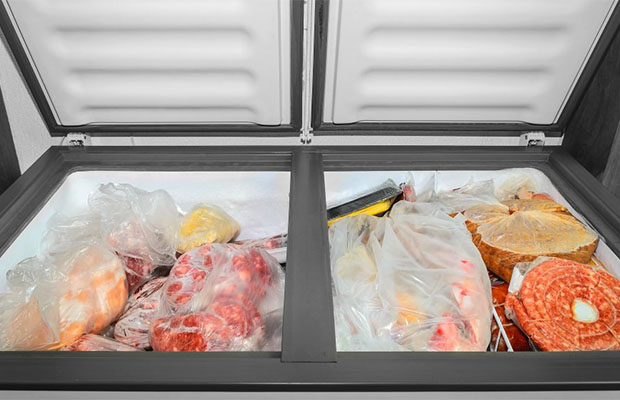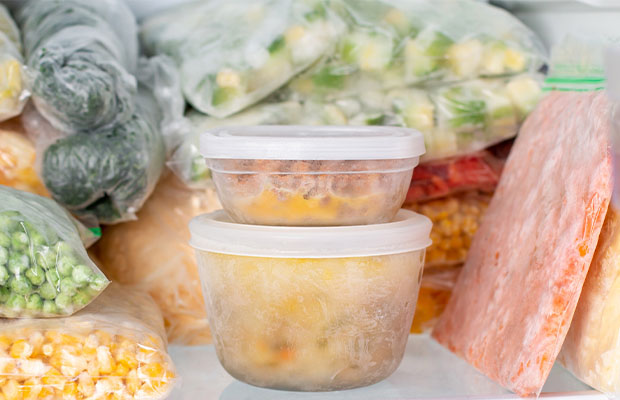For the majority of us, freezing is frequently one of the quickest and most practical ways to preserve food at home. It is the preferred method for storing leftover food, fruits, and vegetables.
Does freezing food kill nutrients? Food items can lose a significant portion of their overall nutritional value when they are frozen.
Although it’s convenient to store frozen goods in the freezer door, it’s not always the ideal location for long-term storage. You will learn more if you continue reading.
Table of Contents
Effect Of Freezing Food
Freezing Food Leads To Chemical Decomposition
- When fresh produce is frozen, it goes through a number of chemical changes that may spoil or otherwise degrade the food. For instance, fresh fruits contain essential nutrients in the form of enzymes, which when kept in the freezer lose their nutritional value, color, and flavor.
- A scientific paper published in the Journal of Nutritional Sciences claims that the main issue with freezing food is that it results in food product discoloration and loss of vitamin C, which is crucial for our growth and development.
- The development of rancid flavors as a result of oxidation with air is another harmful chemical transformation that occurs after food products are frozen. In a research study, scientists at Ohio State University demonstrated how freezing food items can cause chemical decomposition and a significant loss of nutrients. Cooked meat, steak, and pork with high salt content have a tendency to oxidize and turn rancid more quickly when frozen, resulting in shorter storage life.
Freezing Food Can Lead To Moisture And Nutrient Loss
- According to the European Food Information Council, freezing food can result in the growth of ice crystals, which can adversely affect the nutritional value of the food items. Food items’ texture and flavor can change when large ice crystals form on them, which causes a greater loss of moisture.
- Food quality and nutrition loss from dehydrating frozen food can be severe, especially in the case of fresh fruits and green leafy vegetables.
Freezing Food Can Lead To Harmful Microbial Growth
- Contrary to popular belief, food does not lose its ability to harbor dangerous microorganisms when it is frozen. There is still a large enough population of microorganisms in freezers, which continue to build up on the foods that are kept there and grow in numbers as a result. This will result in food product spoilage and a sharp decline in nutritional value.
- According to a 2014 research paper written by renowned food technologist William Schafer and presented at the University of Minnesota, freezing food items can cause them to lose vital nutrients, which will ultimately reduce their nutritional value.

How To Freeze Fruit Or Vegetable?
Fruits
Fruits are easy to freeze! Only fruits and berries that are past their prime or on the verge of spoilage should be avoided. Even though you’re freezing the fruits and berries, you don’t want to run the risk of them going bad before they freeze because one bad apple can ruin the whole bunch. Berries can be frozen whole, but you’ll need to cut up fruits like apples and mangos before freezing them. After sorting, give them a thorough wash, blot dry, and then put them in a freezer bag, squeezing out any extra water. Make sure to leave about ¼ of the bag empty. Freeze and enjoy!
Fruit freezing can be a little more difficult, but the extra work can pay off in big ways if you’re willing to put it in. For information on the best ways to preserve particular fruits, see our guide on how to freeze fruit.
Vegetables
Due to an additional step, vegetables can be a little challenging. This step, blanching, is crucial for vegetables (and fruits that are prepared similarly to vegetables, like zucchini and squash), as it prevents browning and softening, giving the vegetables a more palatable texture when thawed. Quick immersion in boiling water followed by a quick plunge into ice water to stop any potential cooking is known as blanching. The secret is to boil for 45–60 seconds, remove, and then scoop up the chunks with a slotted spoon and drop them right into the ice water. Dry them off, put them in a freezer bag, and put the bag in the freezer.
When blanching, however, take care. Overboiling can deplete nutrients, whereas freezing might not. Many nutrients are heat-sensitive, so if you boil vegetables for an extended period of time or wait too long to run them under cold water, you risk losing some of the nutrients they contain.
When it comes to preserving fresh food, the freezer is your friend. If you do it properly, your produce will taste just as good as the day you freeze it. Try it out and let us know what you choose to freeze! It really is the best way to savor your preferred product when it’s not in season!
The Bottom Line
Food can lose a significant amount of nutrients and vital vitamins when it is frozen. Thus, to preserve the nutritional value of your food items, you should avoid freezing them for longer periods of time and consume them as naturally as possible.
Related Reading: Do Freeze Dried Foods Have The Same Nutritional Value?

